Shopify Alternatives [2025]: Find Your Perfect Platform
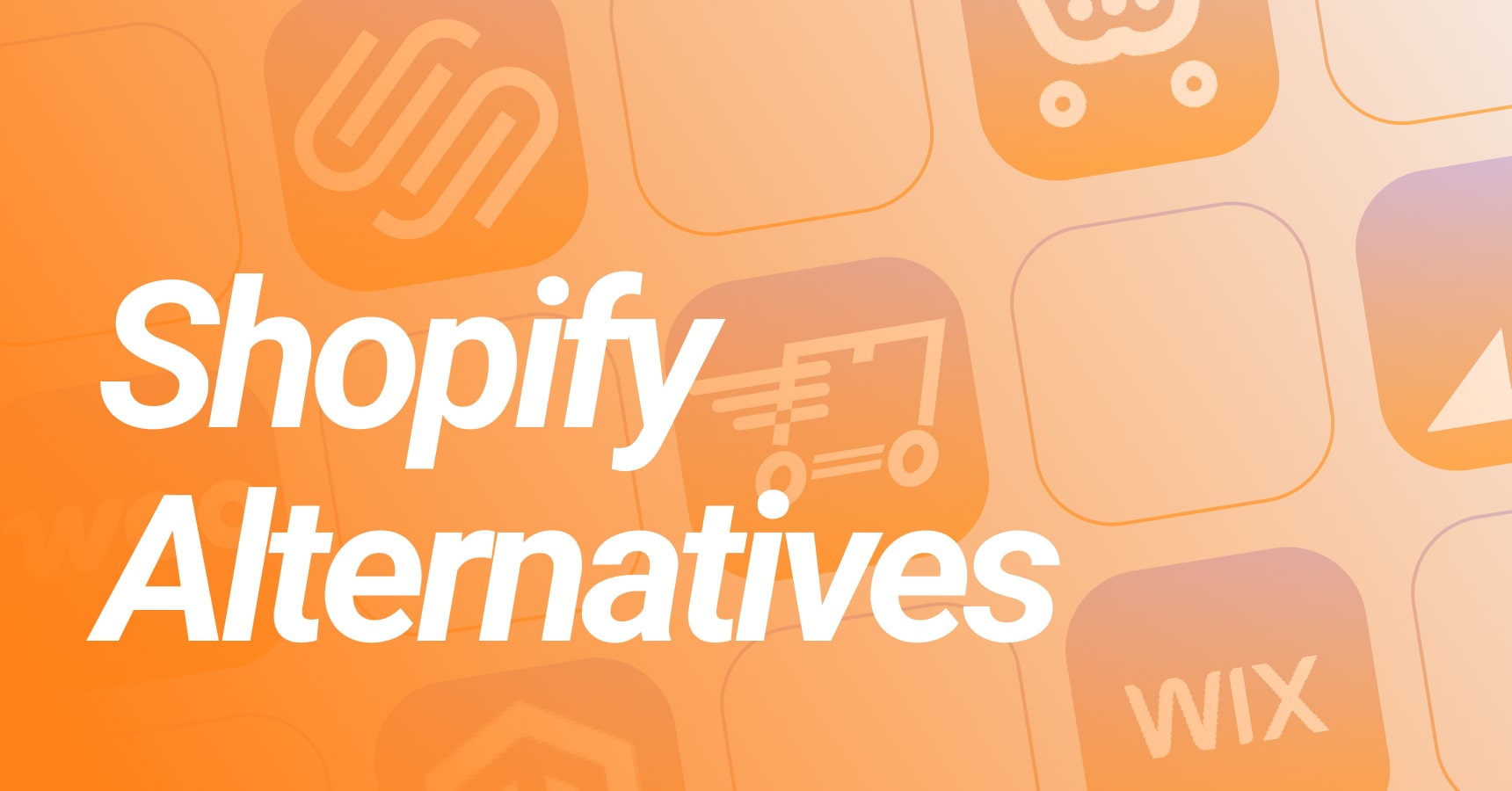
If you are running an ecommerce business or thinking about starting one, you have probably heard a lot about Shopify. It is one of the most well-known platforms out there, popular for a reason – it works for many sellers, is reliable, and offers plenty of features. But it is not the only option worth considering, and exploring Shopify alternatives can help you find a platform that is an even better fit for your goals.
In fact, there are plenty of other ecommerce platforms that offer just as much (or more) than Shopify, depending on your needs. Whether you’re a beginner looking for something simple or a seasoned seller wanting more customization, there’s something out there for you.
In this guide, we’re going to walk through the top Shopify competitors worth checking out in 2025. We’ll go over what each one offers, what kind of business it works best for, and most importantly – why AliDropship might be the all-in-one platform that gives you more bang for your buck 💡
Shopify’s strengths – and why people still look elsewhere
Shopify is a well-known all-in-one ecommerce platform. It’s fast to set up, offers professional-looking themes, handles hosting for you, and has a massive app store to add extra functions. For many store owners, these features make it a solid choice to start selling online.
But even with all those perks, a lot of ecommerce entrepreneurs eventually start searching for Shopify alternatives. Why? Because certain challenges can add up over time and affect both profit margins and flexibility:
- Ongoing monthly costs – the $39/month starter plan sounds fine, but once you start adding paid apps, transaction fees, and premium themes, your expenses can jump quickly.
- Extra fees on payments – if you don’t use Shopify Payments, you’ll pay extra transaction fees on each sale – which can add up, especially if your margins are already tight.
- Limited customization options – Shopify’s templates are polished, but making deep changes often requires coding skills or hiring a developer. Some features are locked behind higher-tier plans or paid apps.
- Platform dependency – since Shopify hosts your store, you’re “renting” your ecommerce space. If you ever want to move your store elsewhere, it’s not as simple as downloading and leaving.
- App reliance for basic features – while the app store is huge, needing multiple paid apps for essential functions can make your store more expensive and harder to manage.
- Dropshipping setup isn’t plug-and-play – Shopify supports dropshipping, but you’ll need to connect it with third-party apps, which can be time-consuming and add extra costs.
These pain points are exactly why many store owners start comparing Shopify with other platforms – looking for something more affordable, flexible, and independent.
What to think about before choosing a Shopify alternative
Before you dive into a new platform, it’s worth taking a step back and thinking about what really matters to you. Switching platforms – or picking one from the start – is a big move. So, it helps to know what you want and need from your ecommerce setup.
Here are a few important things to keep in mind:
- Cost: Are you okay with monthly fees, or do you prefer one-time payments? Are there extra charges for things like apps, themes, or transactions?
- Ease of use: Is it beginner-friendly? Do you need to know how to code or deal with complicated settings?
- Ownership: Do you truly own your website and content, or is it hosted on someone else’s platform?
- Dropshipping tools: If you’re planning to dropship, does the platform support it well or will you need extra plugins?
- Scalability: Can the platform grow with your business, or will you hit a ceiling as you expand?
By checking these boxes, you’ll have a much better idea of which alternative fits your business best. Let’s get into the top picks now.
The most popular Shopify competitors right now 🥇
To make your search easier, here’s a side-by-side breakdown of the best ecommerce platforms out there. This table will give you a snapshot of what each platform offers and where it really shines:
Now let’s dive deeper into each of these and see how they stack up.
1. AliDropship – your all-in-one dropshipping powerhouse
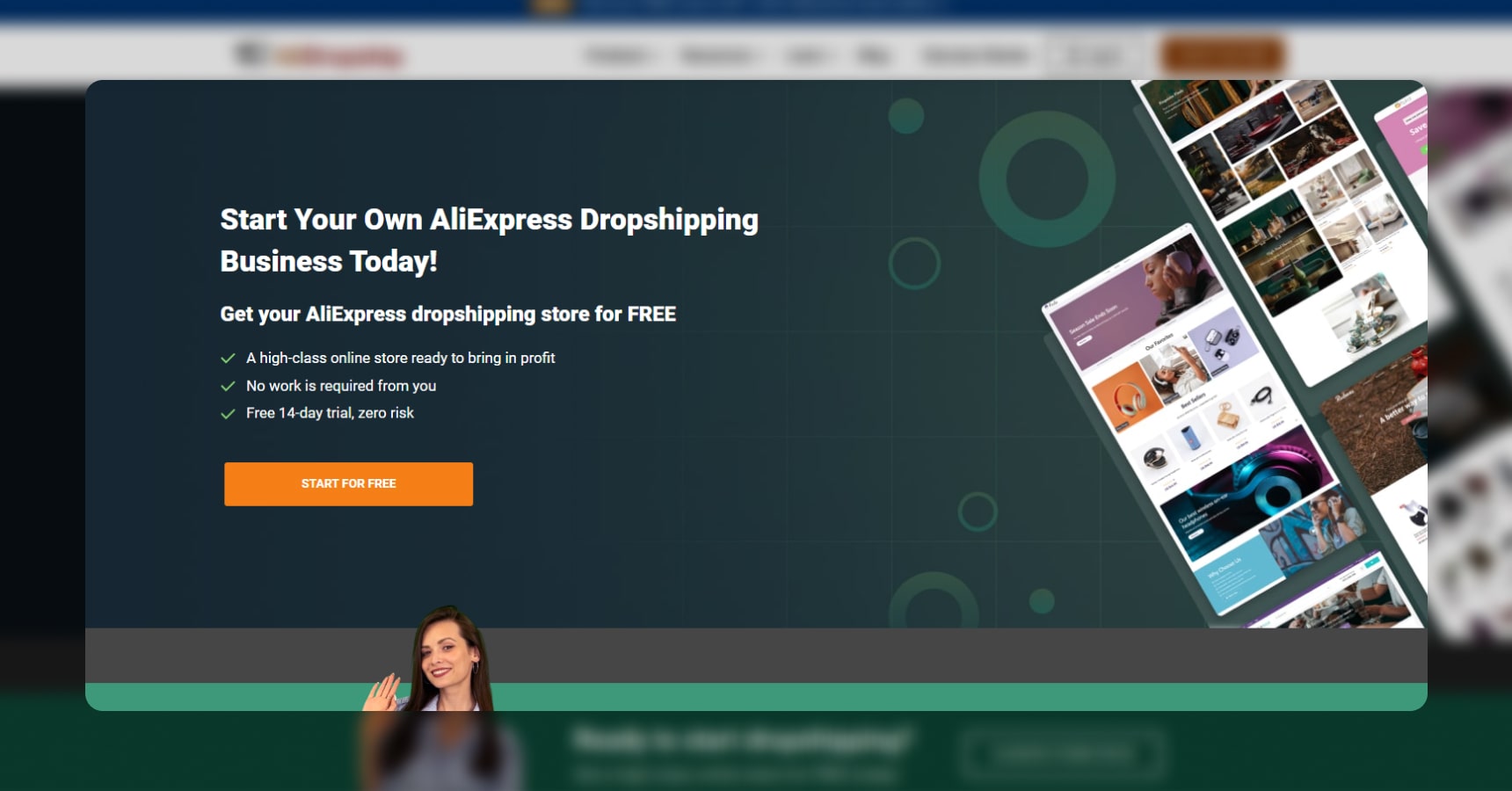
AliDropship is a game-changer if you’re serious about starting a dropshipping business but don’t want to build everything from scratch. What makes it stand out is how much you get in one place. For just $39/month, you get a ready-made online store, full automation tools, and access to a team that actually helps you get your business up and running.
We’ve gathered everything you need in one place, so you can skip the endless app hunt and forget about compatibility headaches. Our turnkey dropshipping store is simple, easy to use, and fully yours because it’s based on WordPress.
Plus, there’s a 14-day free trial, so you can test everything before spending a cent.
✅ Why it’s great:
- Get a professional store designed for you
- Keep 100% of your earnings with built-in payment system – no commissions like Shopify takes
- Easy setup for beginners
- You keep full control of your store
- Automated promotion – no need for a background in marketing
❌ Things to consider: Product selection limited to AliDropship’s partnered suppliers
🎯 Best for: Anyone who wants to launch a dropshipping store quickly with minimal stress and maximum freedom.
2. WooCommerce – super flexible for WordPress users
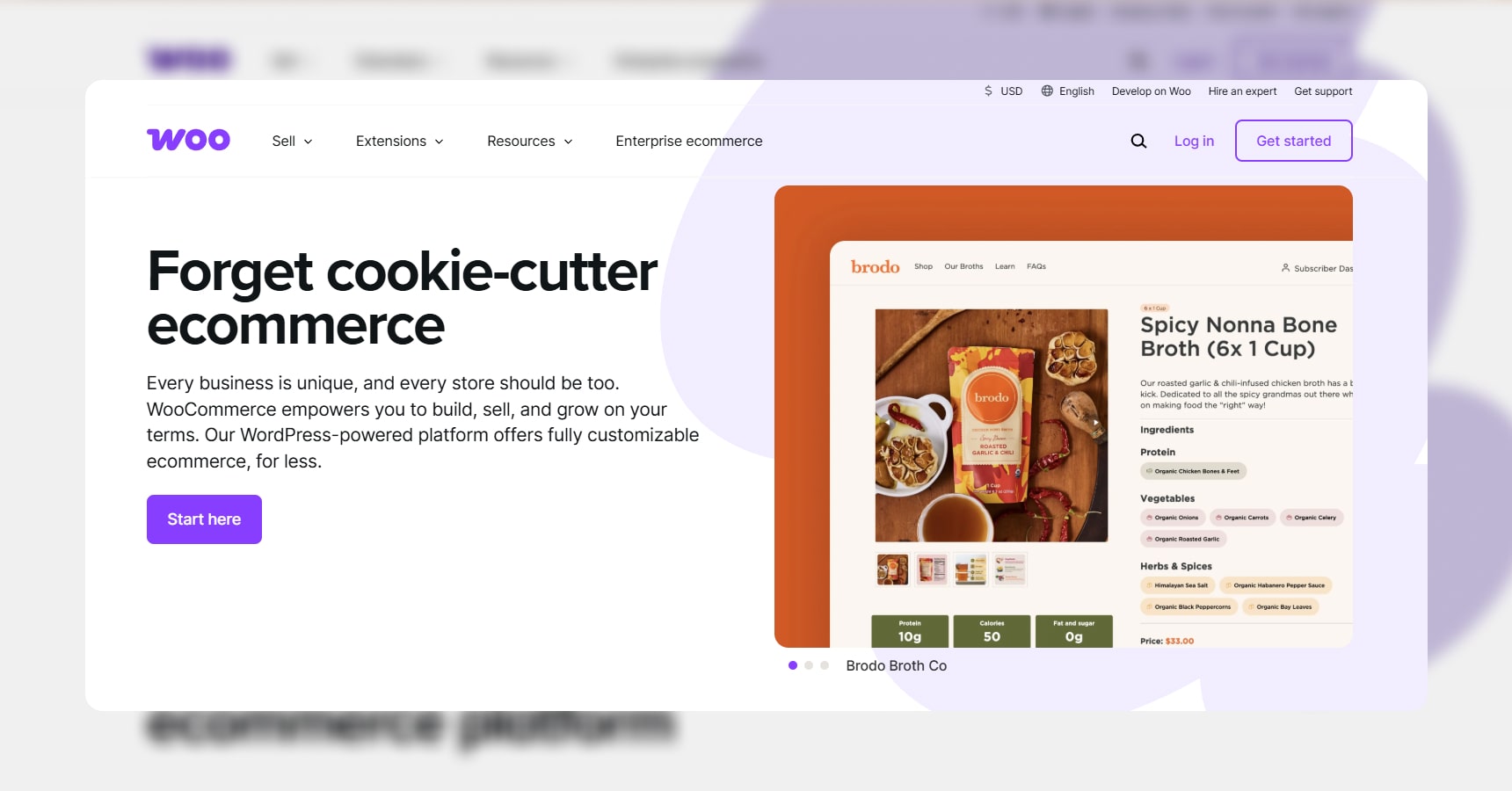
WooCommerce is a powerful ecommerce tool built for WordPress. It’s free to use, but you’ll need to pay for hosting and any premium features you want to add. It’s a great option if you already use WordPress or if you like building things your way.
Because it’s open-source, there are tons of plugins you can add for extra features. You can create exactly the store you want. Plus, WooCommerce offers tools and plugins that help you migrate your store from Shopify to WooCommerce, making it easier to switch platforms if you want more control.
But, fair warning: it’s not the most beginner-friendly platform out there. The learning curve can be steep if you’re brand new.
✅ Why it’s great:
- No monthly platform fees
- Total design and function freedom
- Huge plugin ecosystem
- Supports Shopify-to-WooCommerce store migration
❌ Things to consider:
- Setup takes longer
- Can be tricky for non-tech users
🎯 Best for: DIY store builders who want full control and don’t mind rolling up their sleeves.
3. BigCommerce – built for big growth
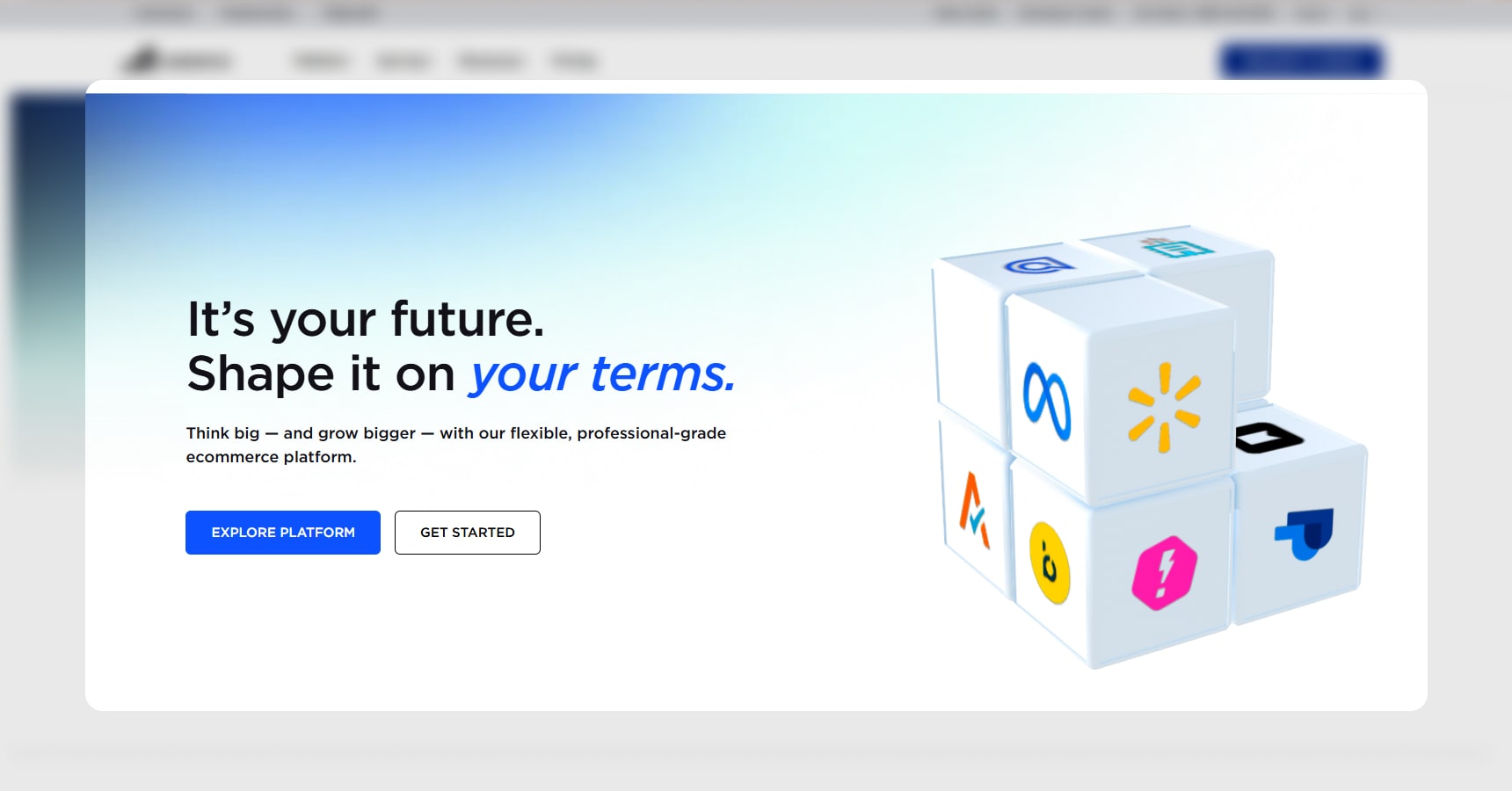
BigCommerce is another solid Shopify competitor, especially if you’re managing a large product catalog or expecting to scale quickly. It’s a hosted solution, so you don’t have to worry about technical stuff like servers or security.
It comes with a lot of built-in tools – SEO, analytics, multi-channel selling – and you don’t need to rely on tons of third-party apps. That said, it’s not the cheapest option, and some people find the user interface a bit overwhelming at first.
✅ Why it’s great:
- Powerful tools included
- Built to support growing stores
❌ Things to consider:
- Monthly costs can add up
- Less beginner-friendly
🎯 Best for: Mid-sized to large online businesses ready to scale.
4. Wix – simple, stylish, and stress-free
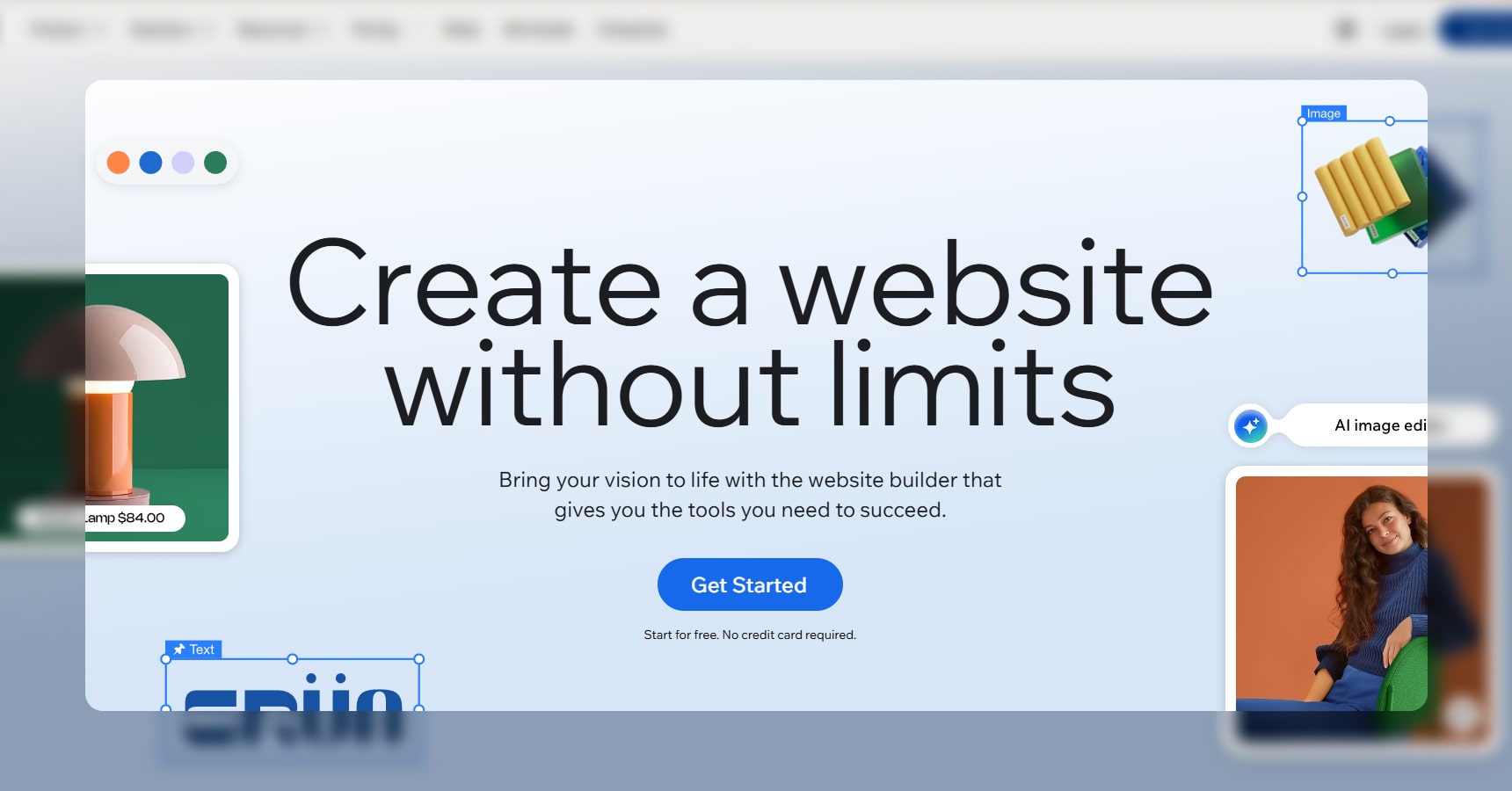
If you’ve never built a website before, Wix is probably one of the easiest places to start. It uses a drag-and-drop builder that’s great for creatives and small business owners who just want to get online without the tech fuss.
Wix does offer ecommerce plans, and they’re pretty solid for small stores. But if you’re looking for deep inventory management or dropshipping automation, it might not be your best bet long term.
✅ Why it’s great:
- Super easy to design
- Great for visual branding
❌ Things to consider:
- Not built for scaling big stores
- Performance issues impacting user experience
🎯 Best for: New store owners with a small product line who want a nice-looking shop fast.
5. Squarespace – perfect for design-first businesses

Squarespace is known for beautiful websites – and their ecommerce tools are perfect for people who value design just as much as function. You can create a polished, professional-looking site with almost no effort.
It’s not the most advanced ecommerce platform, though. If you’re planning to run a complex store or want to focus on dropshipping, you might feel a little limited.
✅ Why it’s great:
- Stunning templates
- Easy to manage content and sales together
❌ Things to consider:
- Not ideal for big product catalogs
- Dropshipping tools are limited
🎯 Best for: Creators, artists, and small businesses with a strong focus on branding and design.
6. Ecwid – turn your existing site into a store

Already have a blog or website? Ecwid lets you add an online store without rebuilding your whole site. It works with platforms like WordPress, Wix, and even social media.
You can start selling with the free plan, and it’s easy to get going. But, as your business grows, you might outgrow what Ecwid can offer.
✅ Why it’s great:
- Adds a store to your current site
- Sells on multiple platforms
❌ Things to consider:
- May lack long-term flexibility
- Relies on third-party platforms for hosting
🎯 Best for: People who want to start selling from their existing website without switching platforms.
7. Shift4Shop – free (if you’re in the US)

Shift4Shop gives you a ton of features for free – as long as you’re in the US and use their payment processor. That deal can save you a lot, especially if you’re just starting out.
The platform offers great functionality, but the design and user experience can feel a little outdated compared to newer tools.
✅ Why it’s great:
- No monthly fees for US users
- Full-featured ecommerce system
❌ Things to consider:
- Limited to Shift4’s payment system
- Older user interface
🎯 Best for: US-based sellers who want lots of tools without monthly charges.
8. Magento – serious power for serious stores

Magento is for the big leagues. If you’re running a large ecommerce operation and need full control over everything, Magento can do it all. But it’s not for beginners.
It’s extremely powerful but usually requires a developer (or a whole team) to set up and maintain. It also comes with higher costs and more complexity.
✅ Why it’s great:
- Built for enterprise-level stores
- Deep customization and control
❌ Things to consider:
- High cost of setup and maintenance
- Steep learning curve
🎯 Best for: Large ecommerce brands with the budget and tech support to manage a heavy-duty platform.
How does AliDropship compare to Shopify?🤔
Now that you’ve explored some of the popular Shopify alternatives, it’s time to compare Shopify and AliDropship directly. Although both platforms help you build and run an online store, they are built on very different foundations, and using each feels like a different experience altogether. Understanding these differences can help you pick the platform that truly fits your business needs.
Price: Which platform fits your budget?
Shopify’s pricing starts at $39 per month, which covers the basic store setup.
But here’s the catch – many store owners find their monthly expenses climbing fast as they add paid apps, premium themes, or features locked behind higher-tier plans. And if dropshipping is your focus, you’ll likely need extra services like Spocket, which can cost as much as Shopify itself.
On top of that, Shopify charges transaction fees unless you use their own payment gateway, which can chip away at your profits.
AliDropship also comes in at $39 a month, but here’s where it stands out ⬇️
Our entire ecosystem is purpose-built for dropshipping, drawing on years of hands-on experience and proven results. Every store we create is thoughtfully designed to meet the real needs of dropshipping businesses, with all the essential tools working together seamlessly.
From day one, most of the heavy lifting runs on autopilot, so you can focus more on growing your business and less on juggling the tech.
Store ownership: Renting versus owning
With Shopify, your store is hosted on their platform, meaning you’re essentially renting your ecommerce space. While Shopify handles all hosting, security, and maintenance, you don’t have full ownership of your site. If you decide to switch platforms or if your store breaks any of Shopify’s rules, moving or backing up your store isn’t always straightforward.
AliDropship, on the other hand, gives you ownership with a fully hosted standalone ecommerce website that includes your domain name and SSL certificate. This means you get a ready-to-go online store that’s all yours, with secure hosting taken care of. It’s like owning your own home rather than renting an apartment.
Ease of launch: How fast can you get started?
Shopify offers plenty of built-in features, but setting up a dropshipping store can still be time-consuming. You’ll need to pick and install dropshipping apps, connect with suppliers, and configure settings. For newcomers, this setup process can feel complicated and overwhelming.
AliDropship makes launching much simpler by offering turnkey dropshipping stores. You can get a fully built store complete with trending products and built-in automation tools. This means less technical hassle and faster time to start selling, so you can focus on marketing and growing your business.
🧠 Which one should you choose?
If you want a platform that’s simple to use, keeps your costs predictable, and offers you full control and ownership, AliDropship is a smart choice. It’s designed to give you all the dropshipping tools in one place with none of the hidden fees or restrictions that can come with Shopify.
In other words, if you value freedom, flexibility, and a straightforward pricing plan, AliDropship could be exactly what you need to build and grow your ecommerce business with confidence.
So, which Shopify competitor is the right fit for you?
Choosing the best Shopify alternative really comes down to the kind of ecommerce business you want to build and how involved you want to be in managing your store. Different platforms shine in different areas, so it’s important to match your needs with what each competitor offers. Here’s a quick guide to help you decide:
Looking for an easy setup with a complete dropshipping package?
If you want to skip the technical headaches and get a fully functional store up and running fast, AliDropship is a great choice. It comes with everything you need built-in – from product imports and automation tools to marketing features – all for one flat monthly price. This makes it perfect for entrepreneurs who want to focus on selling rather than fiddling with complicated setups.
Want full control and endless customization options?
If you love the idea of tailoring every detail of your store, WooCommerce is a fantastic option. Since it’s built on WordPress, you can add any plugins, customize designs, and really build your store exactly how you want it. Just keep in mind it requires a bit more technical know-how and patience to get started.
Running a large business that needs advanced enterprise features?
For big stores with lots of products, customers, and complex needs, platforms like BigCommerce or Magento can offer powerful built-in tools designed to handle heavy traffic, multiple sales channels, and sophisticated inventory management. They come with a steeper learning curve and higher price points, but can scale with your business.
Prioritize simple design and ease of use?
If your focus is on having a visually appealing site without much fuss, Wix or Squarespace are solid picks. Both platforms offer intuitive drag-and-drop editors and beautiful templates that make creating a professional-looking store easy, especially for beginners or small shops.
Ready to get started with your own store?
If you’re done with monthly fees piling up and you’re looking for a smarter way to run your ecommerce business, give AliDropship a try. With our all-in-one platform, you can get a professionally built store, powerful tools, and complete ownership for just $39/month.
Looking for an easy way to start dropshipping?📦 AliDropship handles everything for you – product sourcing, automation, and marketing in one slick package.









